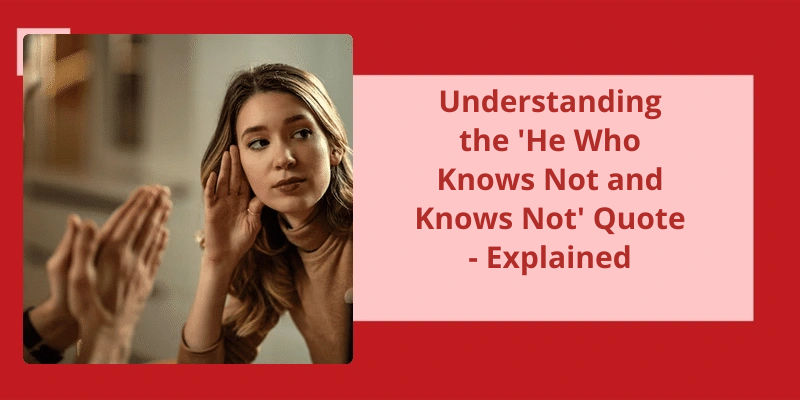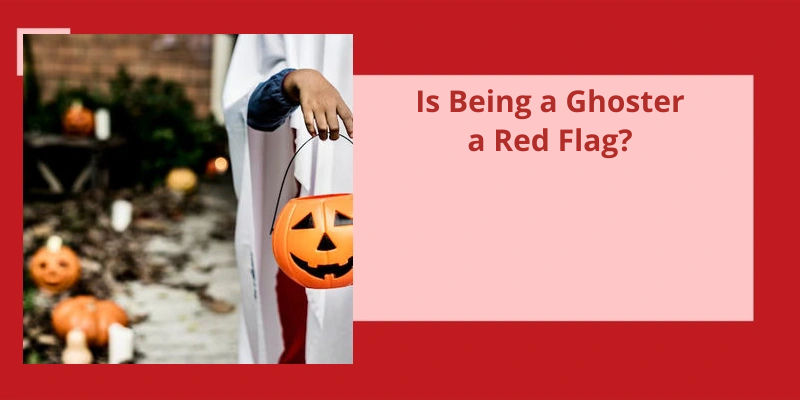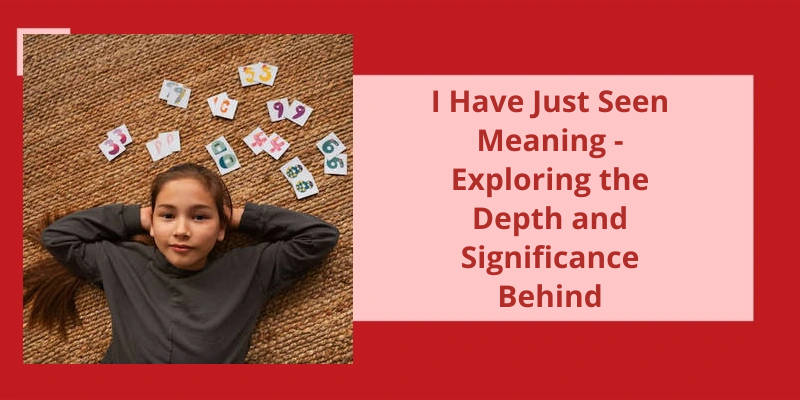There are many proverbs and quotes that we come across in our lives, but some of them hold great significance and provide valuable lessons. The aforementioned Oriental maxim is one such saying that’s been passed down through generations and holds a deep meaning. At it’s core, this quote talks about the importance of self-awareness and knowledge. It suggests that one who’s knowledge and is aware of it will lead a prosperous and fulfilling life. On the other hand, those who lack knowledge but acknowledge their ignorance can still lead a decent life, for they’re willing to learn and grow. The intricacies of this quote go beyond it’s mere translation; it speaks to the human experience and offers a guide for a meaningful life.
What Is the Persian Proverb for He Who Knows?
The Persian proverb for he who knows carries a powerful message that’s still relevant today. It speaks to the importance of self-awareness and how it affects our personal growth and development. Essentially, the proverb is derived from the idea that we must first acknowledge our ignorance before we can attain knowledge. It’s only when we recognize our lack of understanding that we can take steps towards learning and growth.
The proverb is divided into two parts, the first being “he who knows not, and knows not that he knows not, is a fool, shun him.”. This part of the proverb suggests that someone who’s ignorant but unaware of their ignorance is a foolish and potentially dangerous individual. Such people tend to be close-minded and resistant to learning new ways of thinking or understanding. Therefore, it’s important to avoid such people, as they may impede our personal growth and development.
Essentially, this part of the proverb acknowledges the importance of being open-minded and acknowledging our limitations. When we recognize our ignorance and are willing to learn, we can be taught and further our understanding of the world around us. This is the key to personal growth and development, and it ultimately enables us to become more well-rounded individuals.
In todays world, it’s more important than ever to embrace the principles of self-awareness and learning. With so much information at our fingertips, it’s easy to become complacent and to assume that we know everything there’s to know. However, the reality is that there’s always more to learn, and the only way to truly grow and develop as individuals is to embrace this fact and seek out new knowledge and understanding.
It speaks to the importance of acknowledging our limitations and being open to new ways of thinking and understanding. So the next time you encounter someone who seems to be closed off to new ideas, remember the words of this powerful proverb and strive to be someone who’s always open to learning and growth.
Who Thinks He Knows and Knows Not?
There are few things more dangerous than someone who thinks they know everything, when in reality they actually know very little. These individuals are often dismissive of the opinions and experiences of others, believing that their own knowledge and worldview encompasses all that’s necessary to navigate the complexities of life. This type of arrogance can be particularly damaging in settings where collaboration and open communication are necessary for success, such as in the workplace or in personal relationships.
Meanwhile, individuals who’re unaware of their own ignorance can be equally problematic. They may inadvertently make decisions or take actions that have negative consequences, simply because they lack the knowledge or perspective to fully understand the situation. Furthermore, these individuals are often resistant to feedback or constructive criticism, believing that they already know everything they need to know.
The phrase “He who knows not and knows not he knows not, is a fool – shun him” is often used to caution against both types of individuals. It’s a call to recognize the limits of our own knowledge and to approach the world with humility and an open mind. Those who’re unwilling or unable to do so are more likely to make mistakes, cause harm, and hinder progress.
Ultimately, the best way to avoid falling into either of these categories is to cultivate a constant sense of curiosity and a willingness to learn. This means being open to new ideas and perspectives, seeking out information and feedback, and being willing to revise ones understanding of the world as new information becomes available. It also means recognizing that no one person has all the answers, and that true understanding often requires collaboration and discussion with others.
Those who believe they know everything are doomed to failure, while those who’re unaware of their own ignorance are likely to cause unintended harm. By approaching the world with curiosity and an open mind, we can avoid falling into either of these categories, and work towards greater understanding and progress.
Source: teach him. He who knows and knows not he knows, is a …
Socrates’ quote about knowing nothing has been widely interpreted and studied throughout history. It’s been used in various contexts to question the nature of knowledge, wisdom, and self-awareness. In this article, we will explore the origins and implications of this famous quote, and how it continues to inspire philosophical discussions to this day.
What Is a Famous Quote About Knowing Nothing?
Socrates was a Greek philosopher who lived in Athens during the 5th century BCE and is known for his contributions to the field of philosophy. He’s considered the father of Western philosophy and is credited with laying the groundwork for many philosophical principles that are still studied and debated today.
Socrates was known for his use of the Socratic method, which involved questioning ones own beliefs and assumptions in order to gain a deeper understanding of the truth. He believed that true knowledge could only be gained through questioning and self-reflection, rather than through blindly accepting the teachings of others.
The quote, “all I know is that I know nothing,” is often cited as an example of Socrates belief in the importance of humility and self-awareness. By acknowledging that he knows nothing, Socrates is demonstrating his willingness to learn and grow, and his recognition that there’s always room for improvement and further understanding.
The quote has also been interpreted as a criticism of those who claim to have all the answers or who believe themselves to be infallible. Socrates was known for challenging the beliefs of those around him, including some of the most prominent thinkers of his time. His commitment to questioning authority and challenging the status quo was a fundamental aspect of his philosophy.
It embodies his commitment to questioning, his belief in the importance of humility, and his recognition that there’s always more to learn. It remains a powerful statement of intellectual curiosity and humility, and a reminder that there’s always room for growth and improvement.
In essence, the willingness to acknowledge one’s limitations can be the first step in the path towards personal growth and intellectual enlightenment. When we humble ourselves before the vastness of knowledge and admit our lack of expertise in certain areas, we open ourselves up to the possibility of learning and expanding our horizons. This mindset of humility and openness is what defines the wise man who knows what he doesn’t know.
What Does the Wise Man Is One Who Knows What He Does Not Know Mean?
A wise man isn’t arrogant or egoistic. He understands that he’s just one among many and that there’s always room for improvement. That’s why he keeps an open mind and is always willing to learn new things. He doesn’t pretend to know everything or act like a know-it-all. In fact, he’s comfortable with saying “I don’t know” and is eager to discover the answers.
Being aware of ones limitations and acknowledging them is a sign of maturity and wisdom. It means that you understand that you’ve strengths and weaknesses and that no one can be an expert in everything. By recognizing that there are things that you don’t know, you’re opening the door to new opportunities for growth and learning. You’re allowing yourself to become a better person, both personally and professionally.
Knowing what you don’t know is also a sign of intellectual honesty. It means that you won’t deceive yourself or others by pretending to have all the answers. You won’t engage in discussions that are beyond your comprehension or make promises that you can’t deliver. You won’t be afraid to seek the help and guidance of others who may have a better understanding of a particular subject or problem.
What Does the Wise Man Knows He Knows Nothing Mean?
This statement by Socrates is often considered as a paradox since it appears to be self-contradictory. How can someone who claims to know nothing be considered wise? However, when one delves deeper into the meaning behind these words, it becomes clear that Socrates was actually emphasizing the importance of humility and self-awareness.
The idea behind this statement is that true wisdom lies in acknowledging ones ignorance. They’re willing to accept their ignorance and learn from others. This knowledge of ones own ignorance is the first step towards true wisdom.
Socrates believed that knowledge is a never-ending journey. One can never have all the answers and there’s always something new to learn. He once said, “I’m wiser than this man, for neither of us appears to know anything great and good; but he fancies he knows something, although he knows nothing; whereas I, as I don’t know anything, so I don’t fancy I do. In this trifling particular, then, I appear to be wiser than he, because I don’t fancy I know what I don’t know.”
The phrase also suggests that there’s a difference between human and divine wisdom. While human wisdom is limited by our own experiences and understanding, divine wisdom is limitless. Socrates believed that true wisdom comes from understanding ones own limitations and accepting the presence of something greater than ourselves.
Moreover, the phrase highlights the importance of humility. A person who thinks they know everything won’t be open to learning or accepting other peoples opinions. However, a person who acknowledges their own ignorance will be more receptive to new ideas and more likely to learn from other people.
The phrase “all I know is that I know nothing” by Socrates emphasizes the importance of humility, self-awareness, and the acknowledgement of limitations. It’s an invitation to continue learning and growing, realizing that there’s always more to know and discover.
Who Knows and Knows That He Knows?
In some cultures, wisdom is held in high esteem, and those who possess it are revered and respected. The saying “He who knows, and knows that he knows, is wise” embodies this mindset. It suggests that true wisdom comes not only from having knowledge but also from being aware of ones own knowledge.
The idea behind this saying is that a truly wise person not only has information but also knows how to use it. They understand the limitations of their own knowledge and seek out new information to supplement it. They’re also aware of their own biases and are open to exploring new ideas that challenge their own beliefs.
Furthermore, those who know that they know are often perceived as being confident and self-assured. They’re able to make decisions based on their knowledge without second-guessing themselves. They’re also able to share their knowledge with others and help guide them on their own paths.
However, it’s important to note that wisdom isn’t limited to those who’re formally educated or have access to vast stores of information. It can also be found in those who’ve practical experience or have developed their skills through trial and error.
In addition, the idea that we should follow those who’re wise can be problematic if taken too far. Blindly following anyone, regardless of their level of knowledge or experience, can lead to harmful outcomes. Instead, we should use our own judgment and critical thinking skills to assess the advice and guidance of others.
We should strive to cultivate our own wisdom but also use our judgment when seeking guidance from others.
Examples of Wise Individuals Throughout History and Their Impact on Society
- Socrates – philosopher who taught critical thinking and questioned societal norms
- Nelson Mandela – anti-apartheid activist and first black President of South Africa
- Mother Teresa – Catholic nun who dedicated her life to helping the poor and sick
- Martin Luther King Jr. – civil rights leader who fought for racial equality and justice
- Leonardo da Vinci – Renaissance artist, inventor, and thinker who made groundbreaking discoveries in several fields
- Mahatma Gandhi – Indian independence leader who advocated for nonviolent resistance and civil disobedience
- Jane Addams – social reformer and activist who worked to improve the lives of the poor and marginalized
- Margaret Thatcher – first female Prime Minister of the United Kingdom who implemented significant political and economic reforms
- Albert Einstein – physicist who developed the theory of relativity and revolutionized our understanding of the universe
- Mary Wollstonecraft – feminist writer and philosopher who argued for women’s rights and education
Conclusion
The he who knows not and knows not quote carries a powerful message, emphasizing the importance of self-awareness and knowledge in our lives. It reminds us that acknowledging what we don't know is just as critical as recognizing what we do. This ancient wisdom speaks to the core of human existence, urging us to be conscious of our limitations and to strive towards growth and development. By embracing this philosophy, we can become better equipped to navigate the complexities of our lives, and ultimately, find the happiness and fulfillment we seek.






